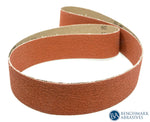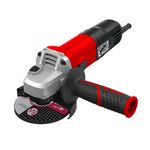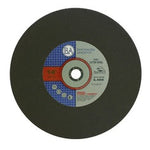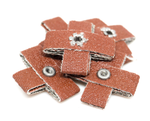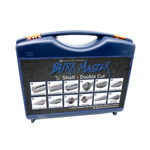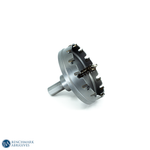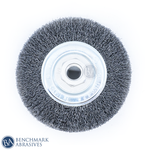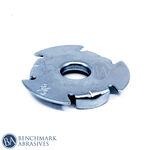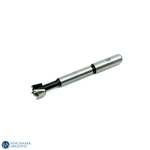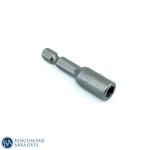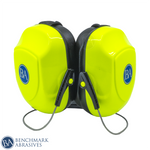Types Of Operations Hacksaw Is Used For

One of the most used instruments in the carpentry and woodworking industries is the saw. Saws are preferred by DIYers, amateurs, and professionals for various tasks in interior design and decoration, cutting metals and wood. This article is all about hacksaws and their applications.
What Is A Hacksaw
A hand tool known as a hacksaw is specialized for cutting through materials, including plastic, steel, and other metals. They are a type of classic hand saw frequently used to cut wood and have become a standard instrument for both beginners and professionals.
Hacksaws offer powerful, precise cutting capability that is appropriate for a variety of tasks and projects. Their unusual adjustable frame, which resembles the letter "D" and holds the blades in tension, distinguishes them physically.
Uses Of Hacksaw
Hacksaws are frequently used by experts such as plumbers, electricians, and mechanics when doing daily tasks. Hacksaws are frequently used for the following purposes:
Types Of Hacksaws
To support various applications and industries, hacksaws are made in various sizes and shapes. The primary categories of hacksaws are:
1. Junior Hacksaw
Junior hacksaws are a smaller version when there is a need for more precise cutting or when space is at a premium. They don't work well for cutting more difficult materials since they have half-sized, weaker blades. Miniature hacksaws are hand tools to cut metal that are light and portable.
2. Mini Hacksaw
Mini hacksaws are lightweight, portable types created to cut in extremely tight spaces and reach high places like home plumbing. They often have D frames that are extremely small and long, with ergonomic handles.
Read More: Types of Hacksaw Blades
3. Full-Sized Hacksaw
Full-sized hacksaws, also referred to as senior hacksaws are robust, multipurpose tools that are simple to use and can easily cut through more challenging materials. They work with blades with 12, 18, 24, and 32 teeth per inch.
4. Power Hacksaw
Power hacksaws, commonly referred to as electric hacksaws, typically have electric motors incorporated into the blades, though they can also be connected to other motors or engines. Powered hacksaws often raise their blades automatically after a stroke. Power hacksaws are mostly stationary tools, but some portable ones are also offered. Another popular addition to preventing the blades from overheating while in use is a coolant pump.
How To Safely Operate A Hacksaw
Safety must always come first when using a hacksaw, just like with any other tool. Here are some critical pointers for safely operating a hacksaw:
- Ensure that you choose the right hacksaw blade for the job.
- Make that the blade faces forward in the proper orientation.
- Make sure the blade is securely fastened to the frame.
- Secure the item you are cutting firmly, such as with a vice.
- Keep your body away from the cutting path whilst sawing ferociously.
How To Replace A Blade In A Hacksaw
Whether you are using a senior or junior model, changing a hacksaw blade is a simple procedure. Here is a helpful step-by-step guide that explains the procedure:
- Apply the fasten-release mechanism or crank the wing nut on your hacksaw, depending on the model, to release the existing blade.
- Slide the current blade out slowly.
- Place the freshly sharpened blade onto the handle's retaining pins.
- Reapply the fasten-release mechanism or tighten the wing nut as appropriate.
- Make a test cut on some scrap metal to ensure the new blade is secure and safe.
Care Instructions For A Hacksaw
Maintaining your hacksaw regularly can guarantee an excellent cut and reduce the safety risk involved with using the tool. Keep in mind these principles when doing hacksaw maintenance:
- You should periodically inspect hacksaw blades for problems, such as warping or blunting.
- Replace blades if they exhibit symptoms of wear and tear.
- To stop the blade from overheating during cutting, lubricate or oil it.
- When cutting complex materials, reduce the chance of breakage by cutting more slowly.
- To maintain hacksaw blades in proper condition for longer, regularly clean them.
CONCLUSION
Hacksaws are versatile tools used on various materials, including wood, metal, plastic, and more. This article addressed every aspect of hacksaws that a person would need to know when using one.

